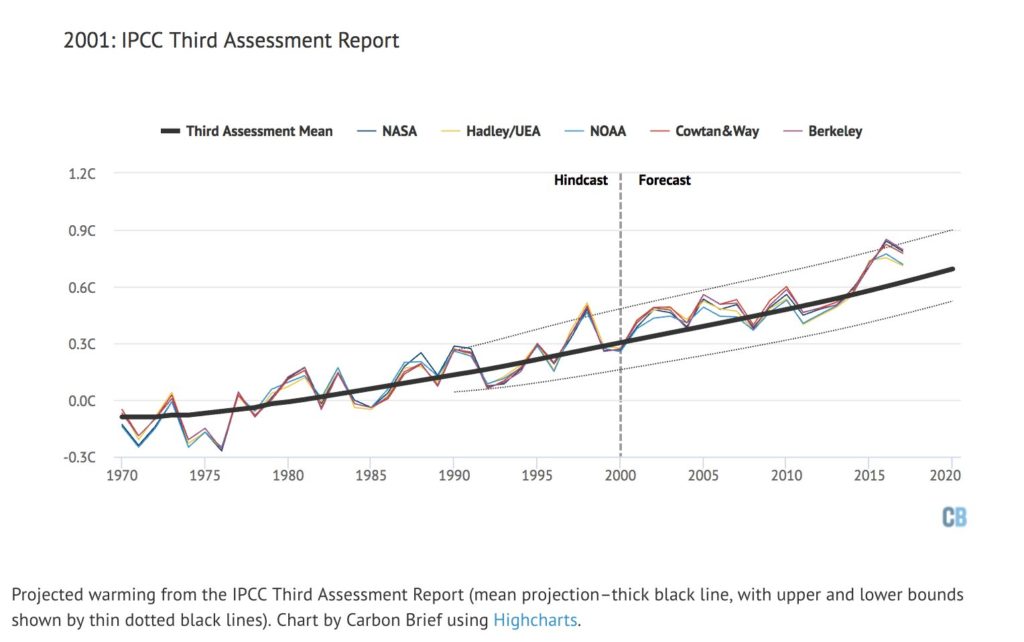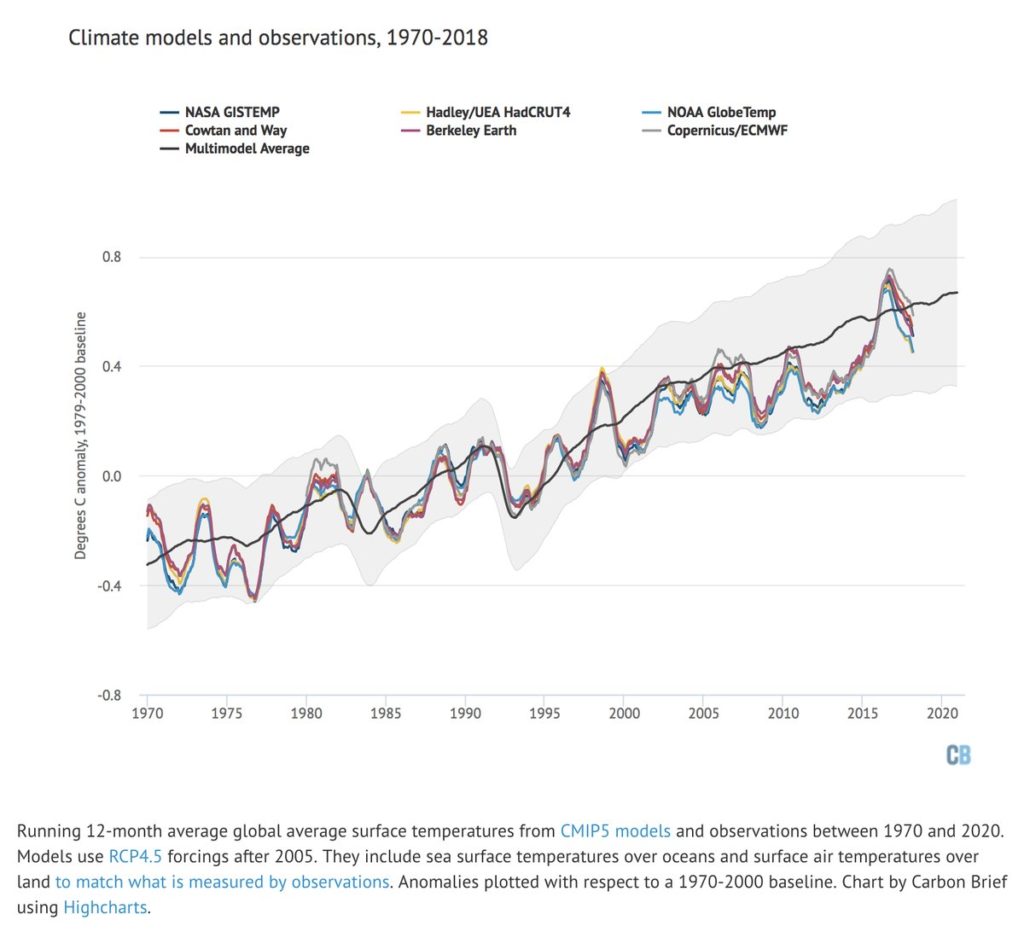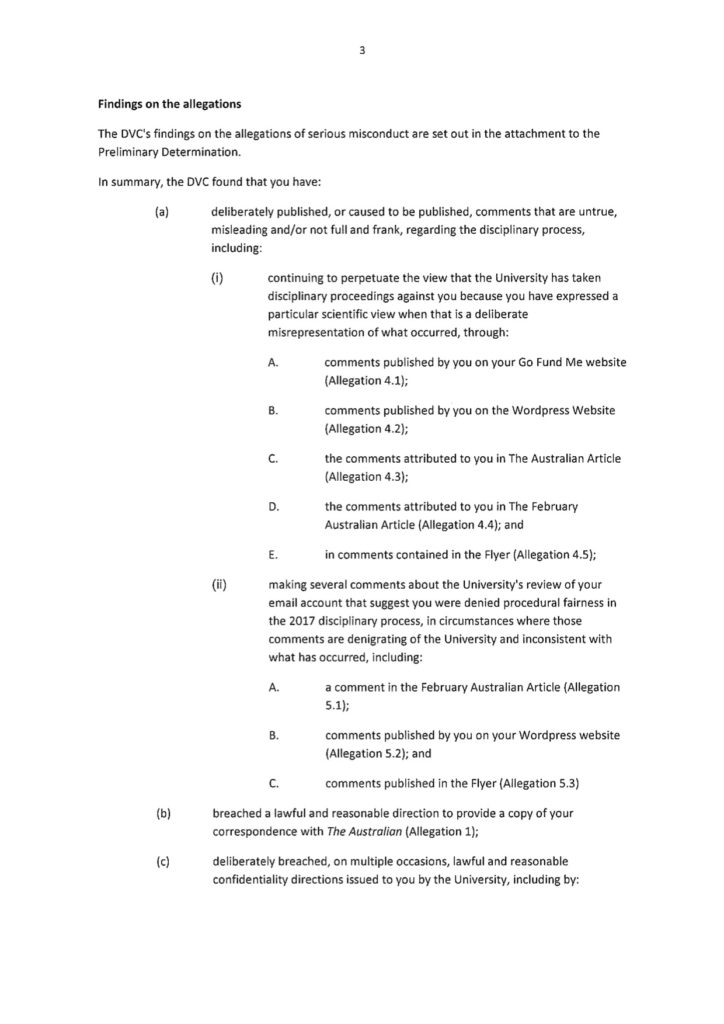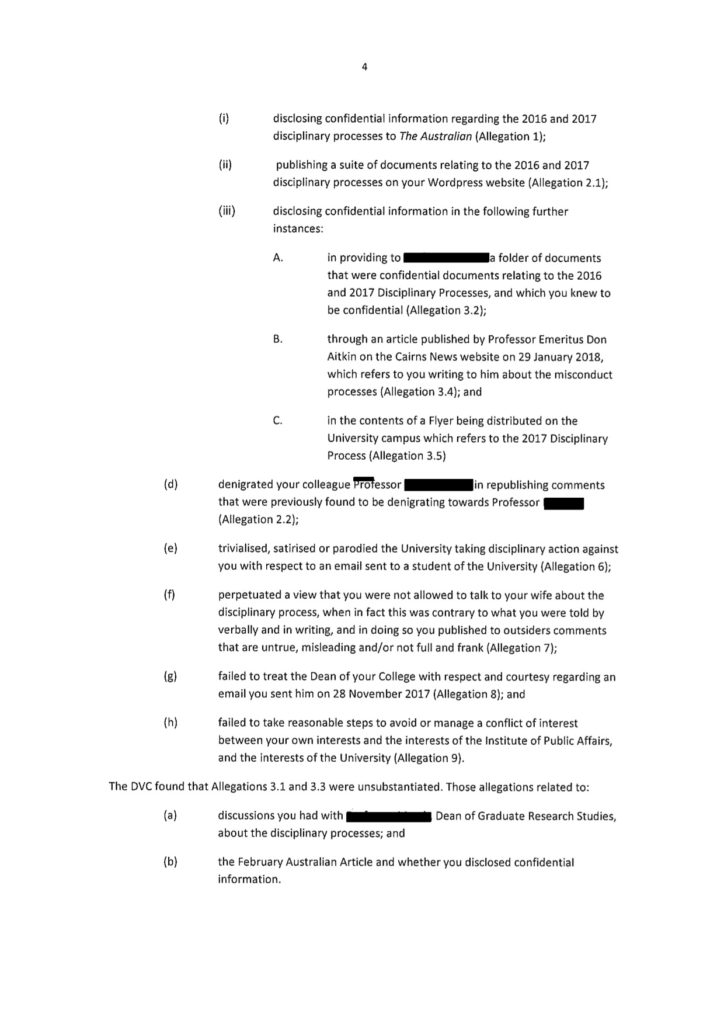 James Cook University has fired marine scientist and climate science contrarian Professor Peter Ridd and as predictably as night follows day, Andrew Bolt is all upset.
James Cook University has fired marine scientist and climate science contrarian Professor Peter Ridd and as predictably as night follows day, Andrew Bolt is all upset.
As a very brief summary, Ridd has long been associated with groups that have misrepresented the state of climate science, he has been speaking openly for more than a decade about his views which, to give you an even shorter summary, is that the Great Barrier Reef is doing just fine and is not threatened by global warming or industrial activity.
But back to Bolt, who devoted his editorial on his Sky News show to Ridd’s case. In his trademark righteous tone, Bolt began: “A scandal in one of our universities,” before weaving the case into the politics of energy prices and free speech.
BOLT: Professor Peter Ridd has been sacked – What a shameful day for Australian universities and Australian science. #theboltreport @SkyNewsAust pic.twitter.com/shrn5D8EAv
— The Bolt Report (@theboltreport) May 21, 2018
But how many of Bolt’s points did he muck up? On your marks, get set… go.
AB: “[Ridd] has been fired for questioning claims by colleagues that global warming is destroying the Great Barrier Reef.”
No he hasn’t. He has been fired for alleged multiple breaches of his university’s code of conduct. Some of his earlier breaches that led to James Cook University’s disciplinary action did relate to comments about his colleagues, but that’s not quite it. JCU started disciplinary action because the way Ridd chose to go about that “criticism” breached aspects of the university’s code of conduct. We know this because Ridd posted all the “strictly private and confidential” letters from his university onto his public website.
AB: “We can’t get good science if we cannot debate.”
Agreed. And you can debate, Andrew, and so can Peter Ridd, and he has been doing, for years.
AB: “We have politicians that are today destroying our cheap and reliable electricity system and driving coal fired power stations out of business because of claims that man’s emissions of carbon dioxide are heating the world dangerously. These are driving up your power bills and it’s threatening to shut down huge coal mines [shows image of protest against Adani mine that has not been built].”
Except there are lots of things that have driven up power prices, and most of those have nothing to do with “claims that man’s emissions of carbon dioxide are heating the world dangerously” but relate, instead, to the far less Bolt-friendly issues of gold-plating of the electricity network, failure of privatisation of retail electricity to deliver price cuts, the policy uncertainties chained to climate science denial, and rising gas prices, to mention just a few. What’s actually “destroying” coal fired power is the economics of building ancient technology in the age of cheaper and cheaper renewables. Oh, and it’s hard to close down a mine that’s not been built yet.
AB: “Even electricity companies like AGL say openly they will cut coal fired power for electricity sell us only green electricity that we are increasingly being forced to use.”
That’s interesting isn’t it. We are not “forced to use” the current dirty power. It’s only when that power is renewable, that the forcing begins. I get it now.
AB: “We have not seen anything like the kind of warming that was predicted.”
That’s true actually. Global temperatures are currently above those predicted by the 2001 UN climate report. Here’s a chart from Carbon Brief’s resident climate scientist Dr Zeke Hausfather…
..and here’s another from Zeke showing how observed temperatures look compared to those predicted by climate models. Basically, they’re in the middle.
So no, Andrew, your claim that we haven’t seen “anything like the warming that was predicted” is totes wrong. Next.
AB: “Yet so many say, well, there must be something to this global warming scare, or else why wouldn’t more academics question it?”
Good question. The answer? They do question it, all the time, and have been doing for decades. The problem is, that every time scientists do try and find an alternative explanation for increasing temperatures, rapid melting of ice, rising sea levels, they can’t explain them without coming up against basic physics.
AB: The late Professor Bob Carter… lost his position as emeritus professor at this same university. Cost cutting, they claimed.
Nah. JCU did not release Carter because of cost cutting, because he wasn’t being paid, and hadn’t been paid there since about 2002. And he wasn’t an “emeritus” professor, but rather was an adjunct professor. As the university told me at the time (July 2013), Carter’s unpaid adjunct position came with expectations such as teaching, collaborative research and student supervisions, and Carter wasn’t fulfilling them. Carter was a climate science denier who was affiliated at one time with a dozen or so like-mined groups and think tanks around the world. he was busy doing stuff for them, and not doing stuff for JCU. So they dropped him.
AB: Take the case of Bjorn Lomborg… who was banned from teaching at two Australian universities for pointing out that most global warming schemes waste money without changing the climate.
I struggle to see how Lomborg could have been “banned” from teaching, when his Australian version of the Copenhagen Consensus Centre wasn’t going to be doing any teaching. Lomborg’s methods have been repeatedly questioned and, while he is often painted as an academic, he really just runs a well-funded think tank. Many would argue that the $4million the government was going to pay for Lomborg’s centre would, itself, have been a huge waste of taxpayer cash.
AB: “[Peter Ridd’s] nightmare started last August on SkyNews when he said claims that the Great Barrier Reef were being destroyed by global warming were being exaggerated. [plays clip] The university charged him and last week sacked him.”
Almost. Ridd first faced disciplinary action back in 2016 over comments he made about pictures that he claimed had been misused by AIMS – a claim I found highly questionable. Bolt played a clip of Ridd, but it did not contain the part that JCU says put him in breach of its code of conduct. It was Ridd’s specific naming of the Australian Institute of Marine Science and JCU’s Centre of Excellence for Coral Reef Studies, which he said people should “not trust”, that got him into bother. An awful lot happened between that event and him being fired on 2 May, such as Ridd breaking confidentiality agreements in publicising all the documents relating to his disciplinary action.
AB: This charge sheet is a complete joke. First, it claims Ridd sensationalised his comments to attract attention… JCU claims Ridd criticised published work, but isn’t criticising science and debating essential to exposing mistakes?
Of course Ridd criticised published work, but that’s not what got him fired. Ridd did recently pull together his criticisms of published work in a “viewpoint” article in a journal. But the scientists at AIMS who responded, pointed out that Ridd was simply repeating criticisms that had already been discussed in the academic literature. They questioned why Ridd had ignored those published critiques of his own work, and instead just repeated the claims. If you want to see the “charge sheet” where JCU lists in its termination letter the reasons why they fired him , then look below. You won’t find anything about “criticising published work” in the full termination letter.
AB: What a shameful day for Australian universities and Australian science.
Only, Andrew, if you misrepresent the issue to within an inch of its life. What I should say here is that Ridd decided to sue his employer last November and that case is still ongoing and that he challenges the university’s actions. He is fundraising to pay his legal bills, with the help of a network of climate science deniers around the world. Whether or not you agree with JCU’s code of conduct, is another point entirely.



